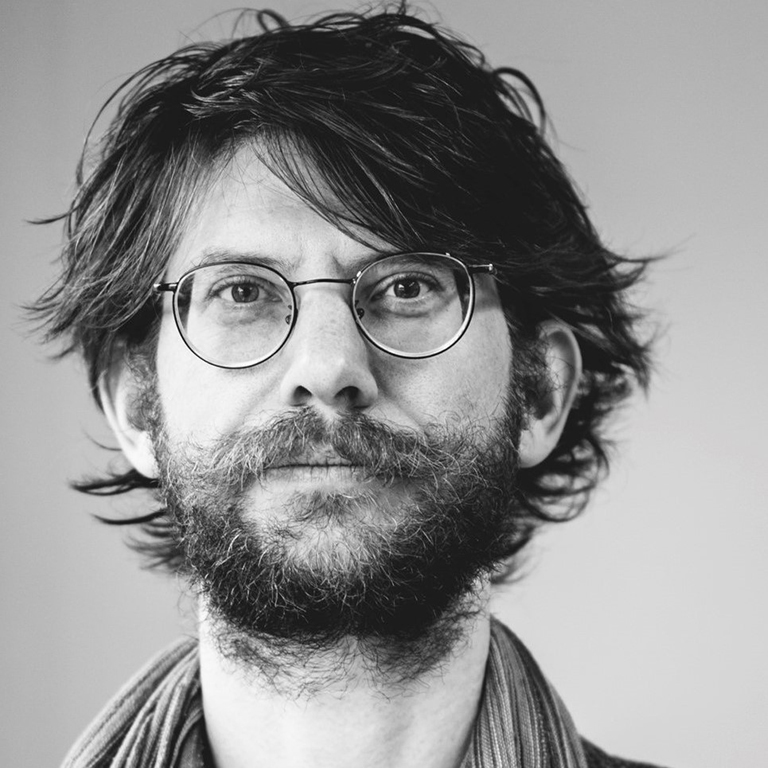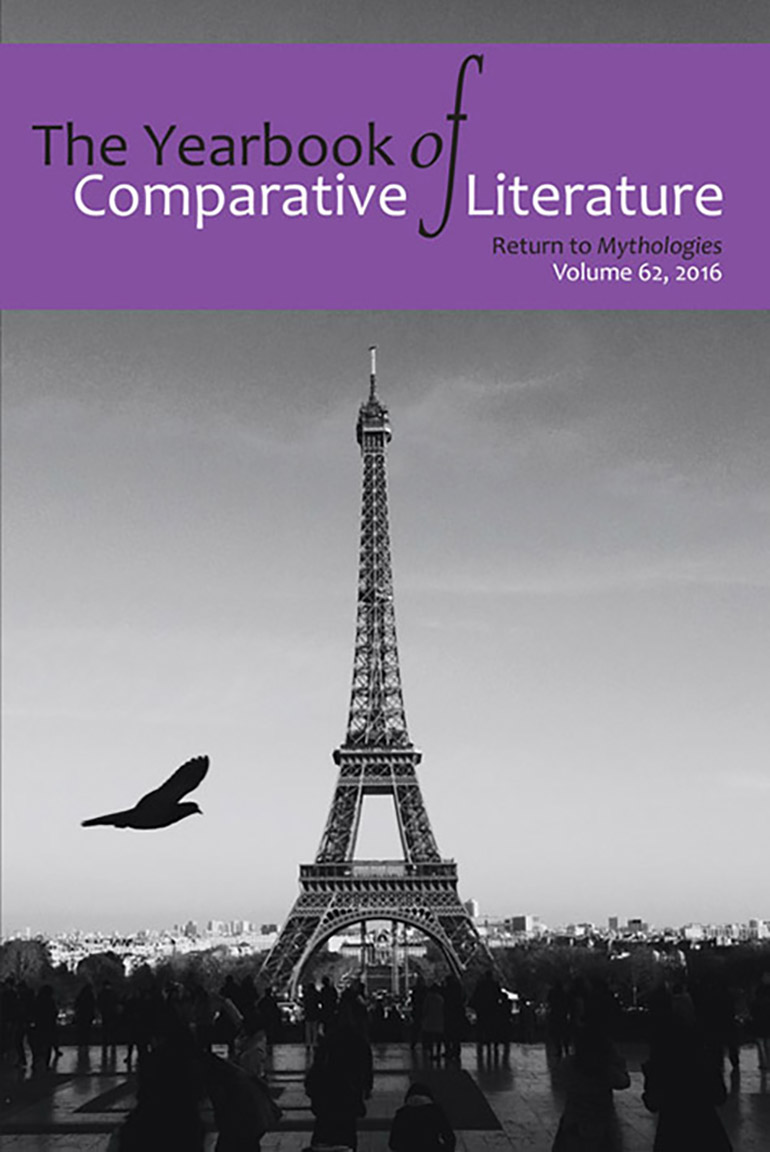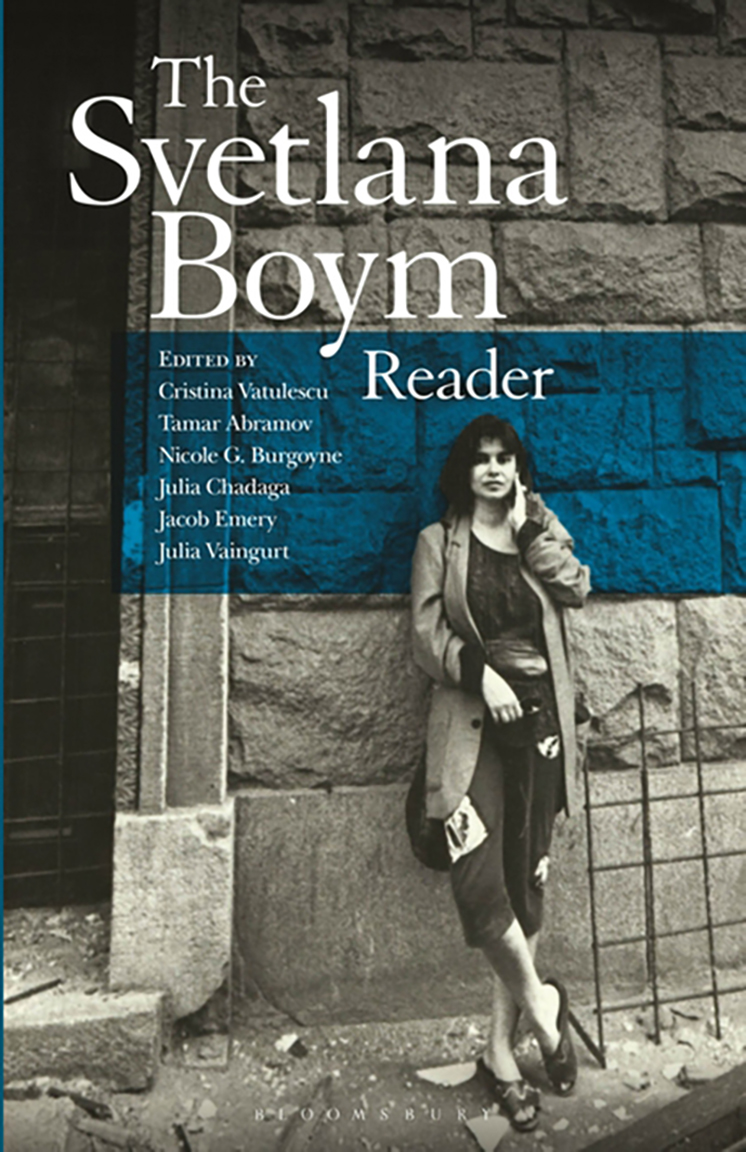- Ph.D., Harvard University, 2006

Jacob Emery
Chair, Comparative Literature
Professor, Slavic and East European Languages and Cultures

Chair, Comparative Literature
Professor, Slavic and East European Languages and Cultures
Comparative Literature. Russian, Balkan, and Scandinavian literature. Materialism and aesthetics. Rhetoric and figure. Modernism. Theory. Science fiction. Utopian thought. Metafiction. Technologies of transcription. Kinship. Panoramic views and aerial photography. Puzzles.
I study artworks in themselves and as a class of objects that we experience as qualitatively distinct from other products of human labor. My articles, on topics ranging from medieval coins to aerial photography, largely examine the intersection between the aesthetic imagination and economic life—for example, how artworks are allied with processes like generational or monetary exchange.
My first book, Alternative Kinships: Economy and Family in Russian Modernism (Northern Illinois, 2017), examines Russian novels that explore modes of relatedness beyond the nuclear family. My second book, a conceptual anthologizing of the Russian literary canon entitled The Vortex That Unites Us: Versions of Totality in Russian Literature, came out with Cornell University Press in 2023; it triangulates artistic inspiration, political tyranny, and aesthetic response in authors including Tolstoy, Khlebnikov, Mandelstam, and Nabokov.
Sections of two other book projects have been published as articles: 1) an inquiry into the status of aesthetic objects at a moment in which all phenomena, including artworks and human beings, are increasingly approached as readily copied assemblages of information, focused through the science fiction theme of the clone; and 2) an effort to elaborate a materialist conception of the mise-en-abyme, or text within the text, as a mechanism by which we recognize the work of art as distinct from other kinds of work—that is, the larger work of economic production that frames the artwork, and which the artwork models in miniature.
I helped edit the Svetlana Boym Reader (Bloomsbury, 2018) and a special issue of the Yearbook of Comparative Literature (2016) on Roland Barthes. I am also the co-editor of and contributing translator to a collection of essays by Sigizmund Krzhizhanovsky, Countries That Don’t Exist (Columbia, 2022). Together with my sister, under the name J. S. Emery, I authored the sprawling fantasy novel A Clockwork River (Head of Zeus, 2021), and we are deep in the raging waters of another book set in the same world.
I teach surveys of Russian literature and literary theory as well as seminars on themes including Vladimir Nabokov, science fiction, Marxist thought, and Formalism. Besides my permanent appointment at Indiana, I have held visiting professorships in the Slavic and Comparative Literature departments at Harvard and Brown and have taught at Moscow State University’s annual Summer School in the Humanities.

Edited by, Jacob Emery, Eyal Peretz
2019

Edited by Cristina Vatulelscu, Tamar Abramov, Nicole G. Burgoyne, Julia Chadaga, Jacob Emery, Julia Vaingurt
2018
Scholarly Books
The Vortex That Unites Us: Versions of Totality in Russian Literature. Cornell University Press, 2023.
Alternative Kinships: Economy and Family in Russian Modernism. Northern Illinois University Press, 2017.
A Clockwork River. With Sara DaSilva, as J. S. Emery. Head of Zeus, 2021.
Edited books
Countries That Don’t Exist: Selected Nonfiction. By Sigizmund Krzhizhanovsky. Edited with Alexander Spektor, translated with Alexander Spektor, et al., Columbia University Press, 2022.
The Svetlana Boym Reader. Edited with Cristina Vatulescu, et al. Bloomsbury Press, 2018.
Articles
“The Contemporary Russian Novel.” In The Oxford Handbook of the Russian Novel, edited Julie Buckler and Justin Weir. Forthcoming, Oxford University Press.
“The Mirror and the Mine: Photography in the Abyss of Labor.” In Capitalism and the Camera, edited Kevin Coleman and Daniel James . Verso, 2021.
“Between Fiction and Physiology: Brain Fever in The Brothers Karamazov and Its English Afterlife.” With Elizabeth Geballe. PMLA, October 2020.
“Humbert Humbert as Mad Man: Art and Advertising in Lolita.” Studies in the Novel, Winter 2019.
“Thinking with Roland Barthes’ Mythologies, 50 Years After 1968 and 400 Years Before.” Yearbook of Comparative Literature, 2016 (2019).
“Romantic Aesthetics and Cybernetic Fiction.” In The Russian Posthuman, edited Colleen McQuillen and Julia Vaingurt. Academic Studies Press, 2018.
“Sigizmund Krzhizhanovksy’s Poetics of Passivity.” Russian Review, January 2017.
“Species of Legitimacy: The Rhetoric of Succession around Russian Coins.” Slavic Review, Spring 2016.
“Danilo Kiš’s Metafictional Genealogies.” Slavic and East European Journal, Fall 2015.
“Jacob Emery reviews David Damrosch’s World Literature in Theory." Asymptote, 2014.
“The Customs House of Hades: Why Dickens and Gogol Traffic with the Underworld.” Yearbook of Comparative Literature, 2014.
“Keeping Time: Reading and Writing in ‘Conversation about Dante.’” Slavic Review, Fall 2014.
“A Clone Playing Craps Will Never Abolish Chance: Randomness and Fatality in Sorokin’s Clone Fictions.” Science Fiction Studies, July 2014.
“ Sigizmund Krzhizhanovsky and Russia’s Belated Modernism.” Iowa Review Forum on Literature and Translation, 2012.
“Figures Taken for Signs: Allegory, Symbol, Mise-en-abyme.” Comparative Literature, Fall 2012.
“Art Is Inoculation: The Infectious Imagination of Leo Tolstoy.” Russian Review, October 2011.
"Art of the Industrial Trace." New Left Review, September-October 2011.
“The Land of Milk and Money: Communal Kitchens and Collactaneous Kinship in the Soviet 1920s.” (M)Otherhood as Allegory, edited Lisa Bernstein and Pamela Goco. Cambridge Scholar's Press, 2009.
“Kinship and Figure in Andrei Bely’s Petersburg.” PMLA, January 2008.
“Repetition and Exchange in Legitimizing Empire: Konstantin Batiushkov’s Scandinavian Corpus.” Russian Review, October 2007.
“Guides to Berlin.” Comparative Literature, Fall 2002.
“The Persistence of the Father in His Hair.” Reč, July 2002.
“Notes on Shatsk as a Gogol Figure.” Pynchon Notes, Spring-Fall 2000-2001.